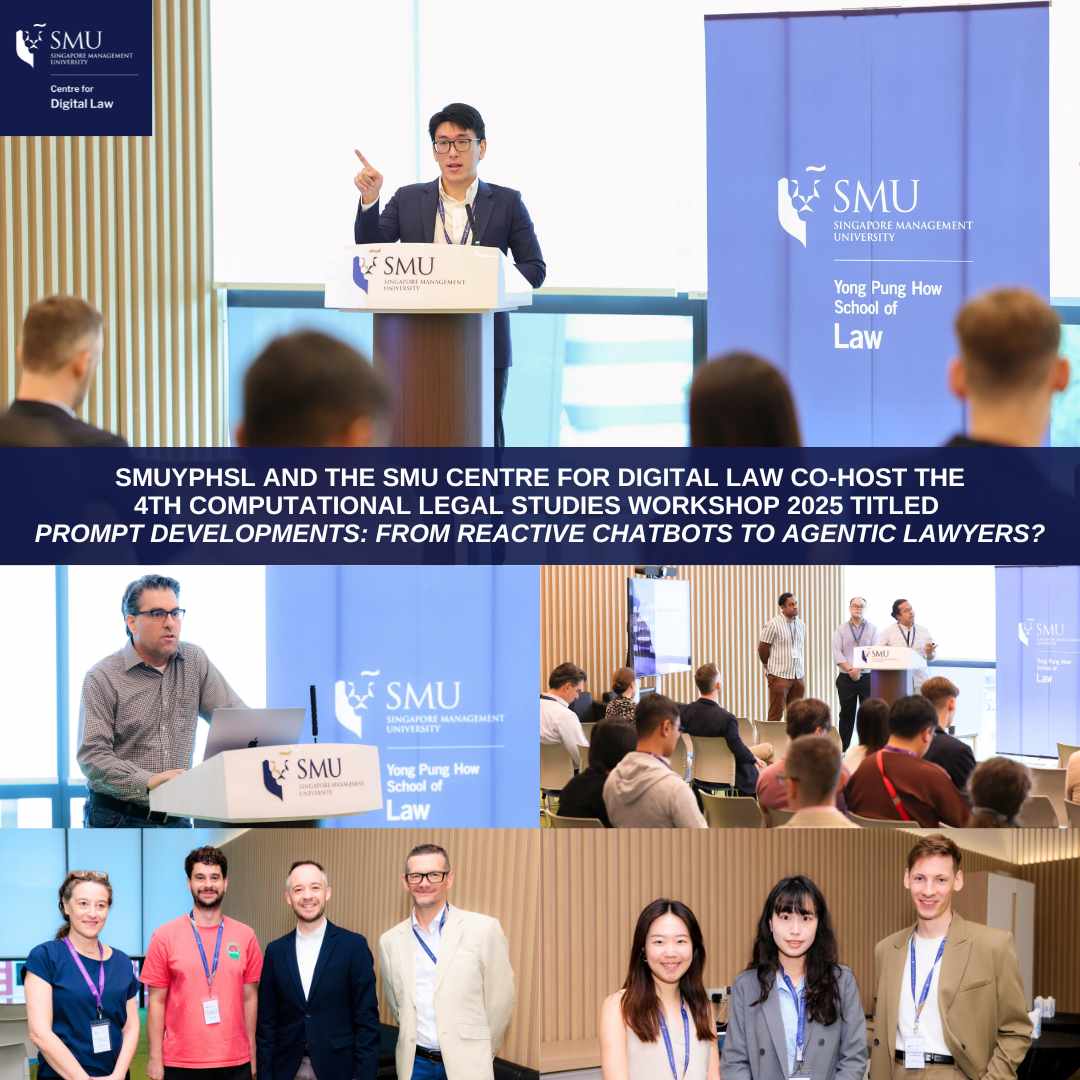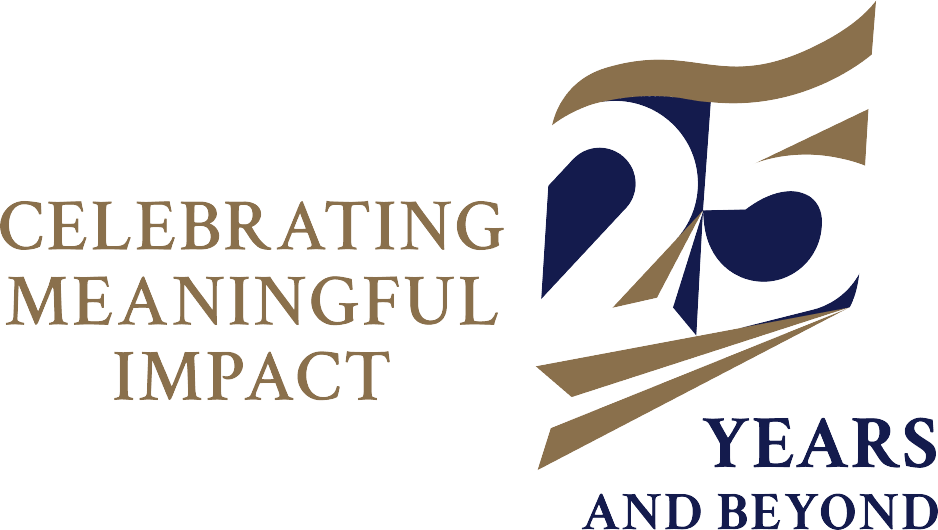
Event Details
The SMU Yong Pung How School of Law and the SMU Centre for Digital Law hosted the 4th Computational Legal Studies Workshop 2025. This year’s theme, "Prompt Developments: From Reactive Chatbots to Agentic Lawyers?", convened leading academics, researchers, and industry practitioners over two days to explore how emerging computational techniques such as AI, machine learning, and network science can be applied to the study and practice of law. This year's workshop was the largest till date. Over two days we heard total of 25 talks delivered both in-person and remotely by scholars and experts from across the world.
Day 1 opened with a keynote by Samuel Dahan (Associate Professor; Director, Conflict Analytics Lab; Queen’s University Faculty of Law) on Co-Creating Legal AI: No-Code Tools for Programmability. The programme also included paper presentations and talks featuring Gomaa Muhamed (Hamburg University) and Brian Tang (UHK), followed by Katalina Hernandez (VOIS) and Akanksha Bisoyi (TUM). We also heard from Dirk Hartung (SMU YPHSL), Alexander Joseph Woon (SUSS), Ian Ernst Chai (Elefant), Joshua Rene Jeyaraj (TikTok), Corinna Coupette & Titus Pünder (Aalto University), Shao-Man Lee & Mu-Ko Chou (NCKU), Tomáš Koref (Goethe University), and Petra Schön (AALL).
Day 2, held alongside TechLaw.Fest’s Day 0, began with a keynote by Daniel M. Katz (Professor of Law; Director, Law Lab; Chicago-Kent College of Law, Illinois Tech) on Thoughts on the Current State of Computational Legal Studies, aligning with TLF’s theme "Reimagining Legal in the Digital Age". We then heard talks from Professors Amy Salyzyn (University of Ottawa), Kat Albrecht (Truman State University), Gal Forer (University of California), Fabian Graf & Yangzi Li (NUS), and Paul Burgess & Ehsan Shareghi (Monash University). The day’s programme also featured two panel sessions with Lijie Bai (Fudan University), Pranusha Kulkarni (GIM), and Thales Bertaglia (Utrecht University), as well as Ana Catarina De Alencar (EIT Manufacturing), Kevin Laurent (University Paris Nanterre), and Nguyen Huu Phuc (University of Danang).
We are grateful to all speakers and participants —some whom travelled from far abroad to join us—for advancing the dialogue on computational legal studies and sharing fresh insights on the interface between computational technology, law, and regulation.In a time of increasing division, we are particularly proud to have fostered an open exchange of ideas between scholars from across North America, Europe, Greater China, India, Southeast Asia, and Australia. Special thanks go to Jerrold Soh (SMU YPHSL), the organiser of this year’s workshop, for bringing this community together.
More information on CLS 2025: https://site.smu.edu.sg/cls-2025#home

